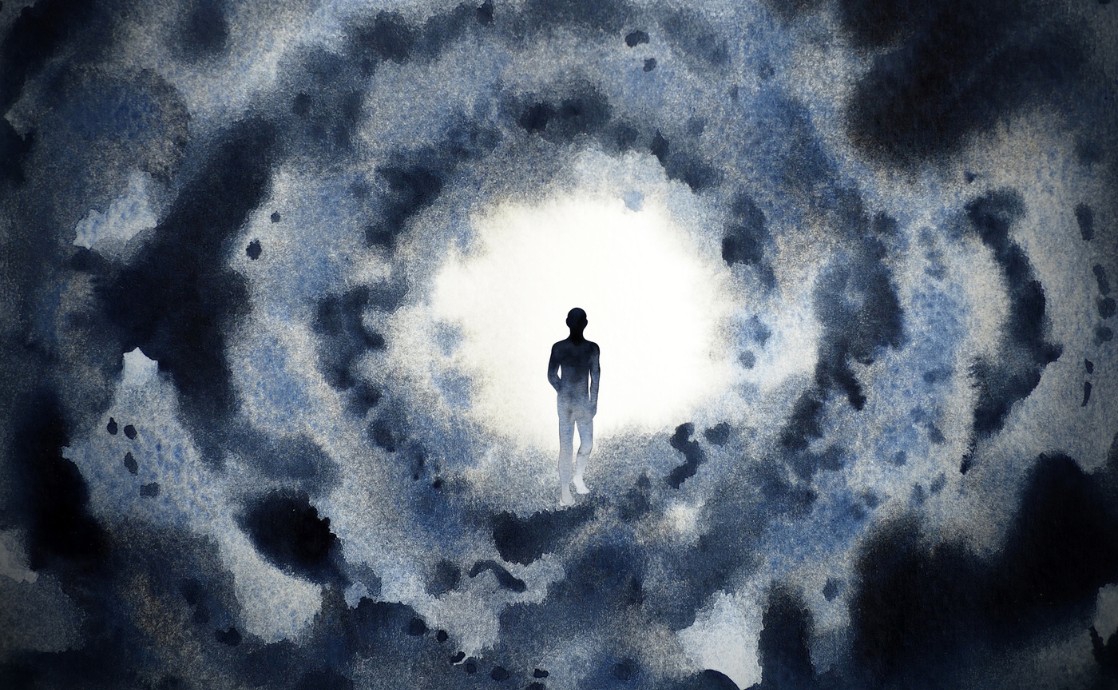The views expressed in our content reflect individual perspectives and do not represent the authoritative views of the Baha'i Faith.
The other day, reading the work of a Baha’i scholar who addresses the mystical quest as it’s understood in the Baha’i teachings, I hoped to learn new ways to deal with our journeys in this realm.
I could relate to this scholar’s astute comments when he said that mystics throughout history have suffered from the “deadening harshness of the spiritual winter.”
Most might define this as a season when our souls feel frozen and stuck. Can you relate? I sure can.
I suppose we could view a spiritual winter both collectively and individually. The former, for example, might include humanity’s seemingly growing inclination to disavow God, or when faith communities turn away from the spirit of their original teachings – something that can be heartbreaking for devout believers.
RELATED: Winter: The Time to Develop Our Spiritual Vision
The Baha’i teachings tell us, though, that all religions tend to go through phases of spring, summer, autumn and winter. In a speech he gave in Chicago in 1912, Abdu’l-Baha explained:
After the spring, summer comes with its fullness and spiritual fruitage; autumn follows with its withering winds which chill the soul; the Sun seems to be going away, until at last the mantle of winter overspreads, and only faint traces of the effulgence of that divine Sun remain. Just as the surface of the material world becomes dark and dreary, the soil dormant, the trees naked and bare and no beauty or freshness remains to cheer the darkness and desolation, so the winter of the spiritual cycle witnesses the death and disappearance of divine growth and extinction of the light and love of God. But again the cycle begins and a new springtime appears. In it the former springtime has returned; the world is resuscitated, illumined and attains spirituality; religion is renewed and reorganized, hearts are turned to God, the summons of God is heard, and life is again bestowed upon man.
The Baha’i writings suggest that we are on the verge of another spiritual springtime with the coming of a new divine revelation, but, perhaps, we are also at the darkness before the dawn.
At an individual level, too, many of us experience – or may get to experience – “the dark night of the soul,” a period of spiritual desolation described by St. John of the Cross, a 16th century Spanish mystic. It’s a period when the soul finds little comfort in much, either spiritual or temporal. “I am told God lives in me,” wrote Mother Teresa of Calcutta in 1957, “and yet the reality of darkness and coldness and emptiness is so great that nothing touches my soul.”
In the Catholic tradition, this deep angst serves as the harbinger of a needed purging process. One Catholic educational website notes that, by withdrawing all consolations and “allowing an almost crushing sense of abandonment to descend upon us, [God] purifies our desires.”
For my part, I sometimes feel like I go through repeated “dark nights of the soul,” a phase described in many faith traditions. So I’ve tried to better understand the cold winters of a spiritual life when God feels very remote and seemingly takes everything away. Maybe it’s a dream that has died, or someone in your life who was once close but has withdrawn their affection, or just the dearth of hope in a harsh world. I wonder – does everyone go through similar experiences?
More importantly, when we do suffer from the dark night of the soul, how do we get out of these pits of desertion and despair? In his book Some Answered Questions, Abdu’l-Baha said:
It is after experiencing remoteness and deprivation from God that man repents and purifies himself. Thus, this purification is a symbol saying: “O God! Render my heart goodly and pure, and cleanse and sanctify it from all save Thy love.”
The baptism ritual in the Christian tradition symbolizes this spiritual process. In the Baha’i teachings, which have no similar rites or rituals, the terms “purification” and “purging” can be found in quotes like this one from the writings of the Bab, Baha’u’llah’s herald and forerunner:
Thus purge thou thine ear that thou mayest hear no mention besides God, and purge thine eye that it behold naught except God, and thy conscience that it perceive naught other than God, and thy tongue that it proclaim nothing but God, and thy hand to write naught but the words of God, and thy knowledge that it comprehend naught except God, and thy heart that it entertain no wish save God, and in like manner purge all thine acts and thy pursuits that thou mayest be nurtured in the paradise of pure love, and perchance mayest attain the presence of Him Whom God shall make manifest, adorned with a purity which He highly cherisheth …
Some people – probably the mystics of the world – have the deep and ever-abiding love for the divine Beloved, which many of us can probably only marvel at and ponder. For the rest of us, making God our primary relationship sometimes seems like a very abstract concept. Our Creator doesn’t physically hold us in our loneliness, tell us what to do about our crushed dreams, or take away the betrayals of those who have hurt us. But perhaps the first step involves recognizing that no external object or person or wish – whether it be another person or something we really want – will ever fill that hole inside of us. Instead, we only find the solace we seek by turning fully to God.
RELATED: What Does God Want Me To Do?
St. Teresa of Àvila, a Catholic saint in the 1500’s, talked about how the nuns she counsels may feel:
… a strange loneliness, finding no companionship in any earthly creature; nor … among those who dwell in heaven, since they are not her Beloved: meanwhile all society is a torture to her. She is like one suspended in mid-air, who can neither touch the earth nor mount to heaven.
Both the Catholic saints and the Baha’i writings ultimately offer some helpful advice for the purifying, purging process that moves us out of those “stuck” and wintry places. This passage from Baha’u’llah, cited often here at BahaiTeachings.org, strikes me as the best advice for emerging from that dark night into a spiritual daylight:
When a true seeker determineth to take the step of search in the path leading unto the knowledge of the Ancient of Days, he must, before all else, cleanse his heart, which is the seat of the revelation of the inner mysteries of God, from the obscuring dust of all acquired knowledge, and the allusions of the embodiments of satanic fancy. He must purge his breast, which is the sanctuary of the abiding love of the Beloved, of every defilement, and sanctify his soul from all that pertaineth to water and clay, from all shadowy and ephemeral attachments.
















Comments
Sign in or create an account
Continue with Googleor